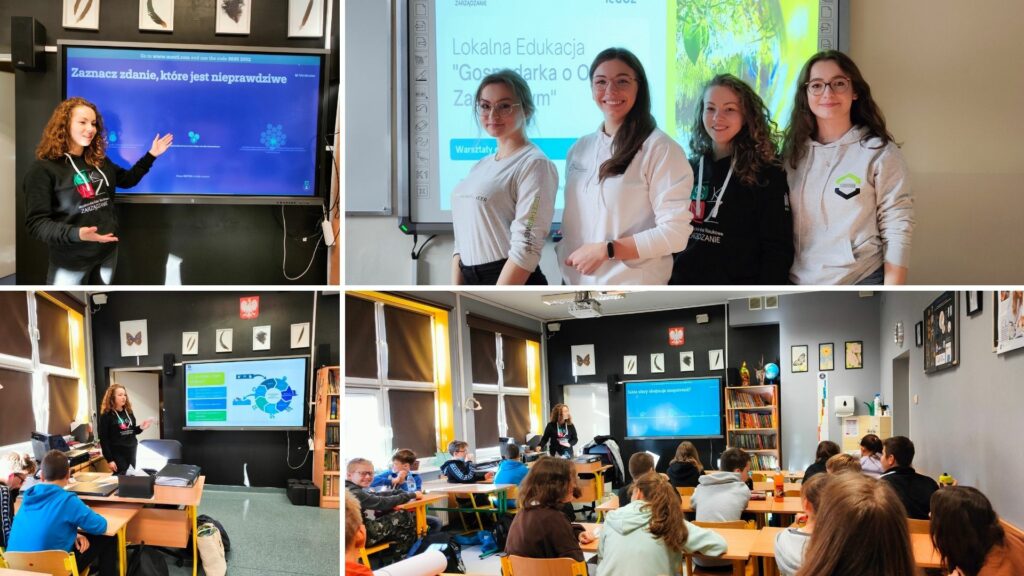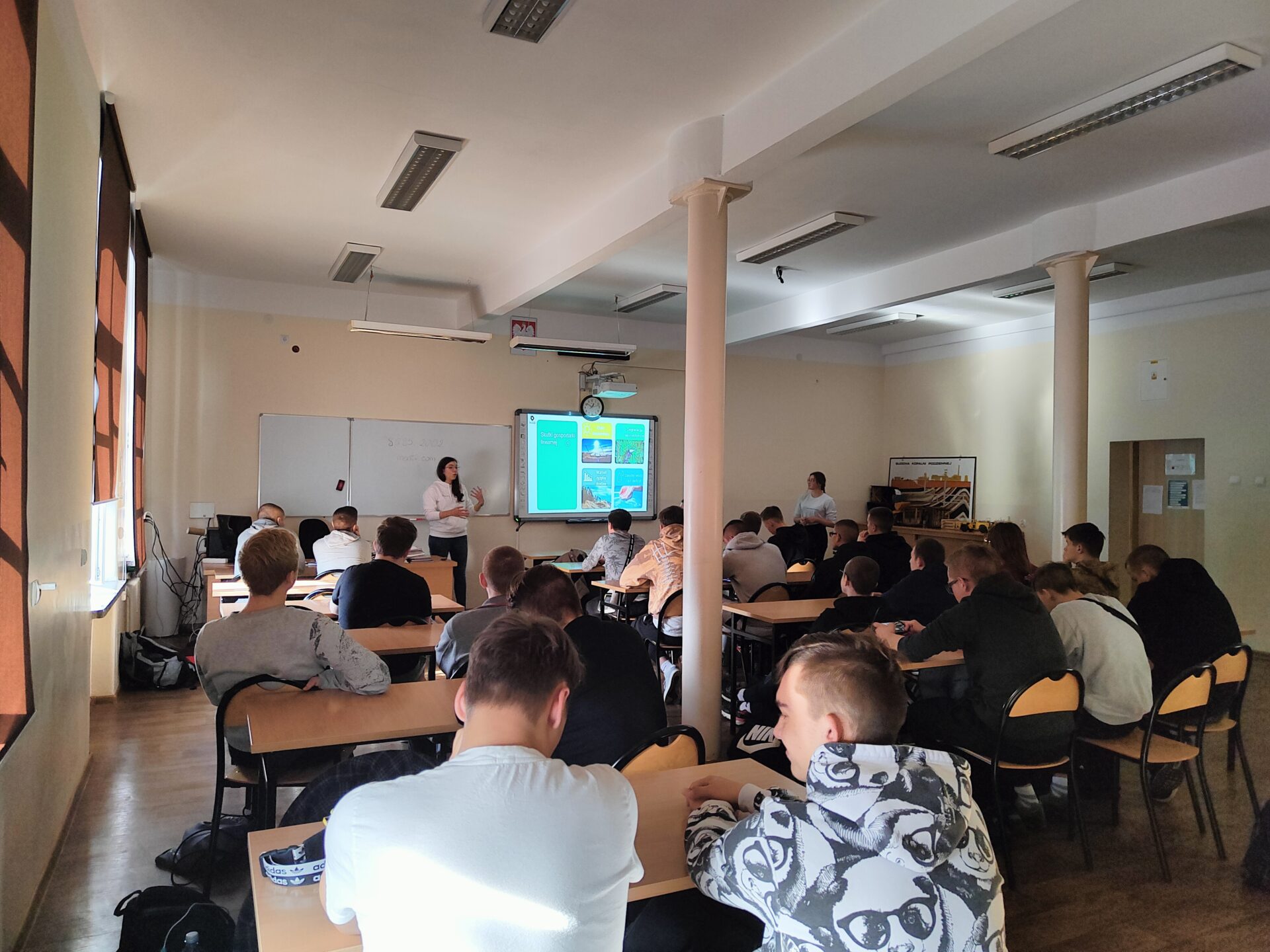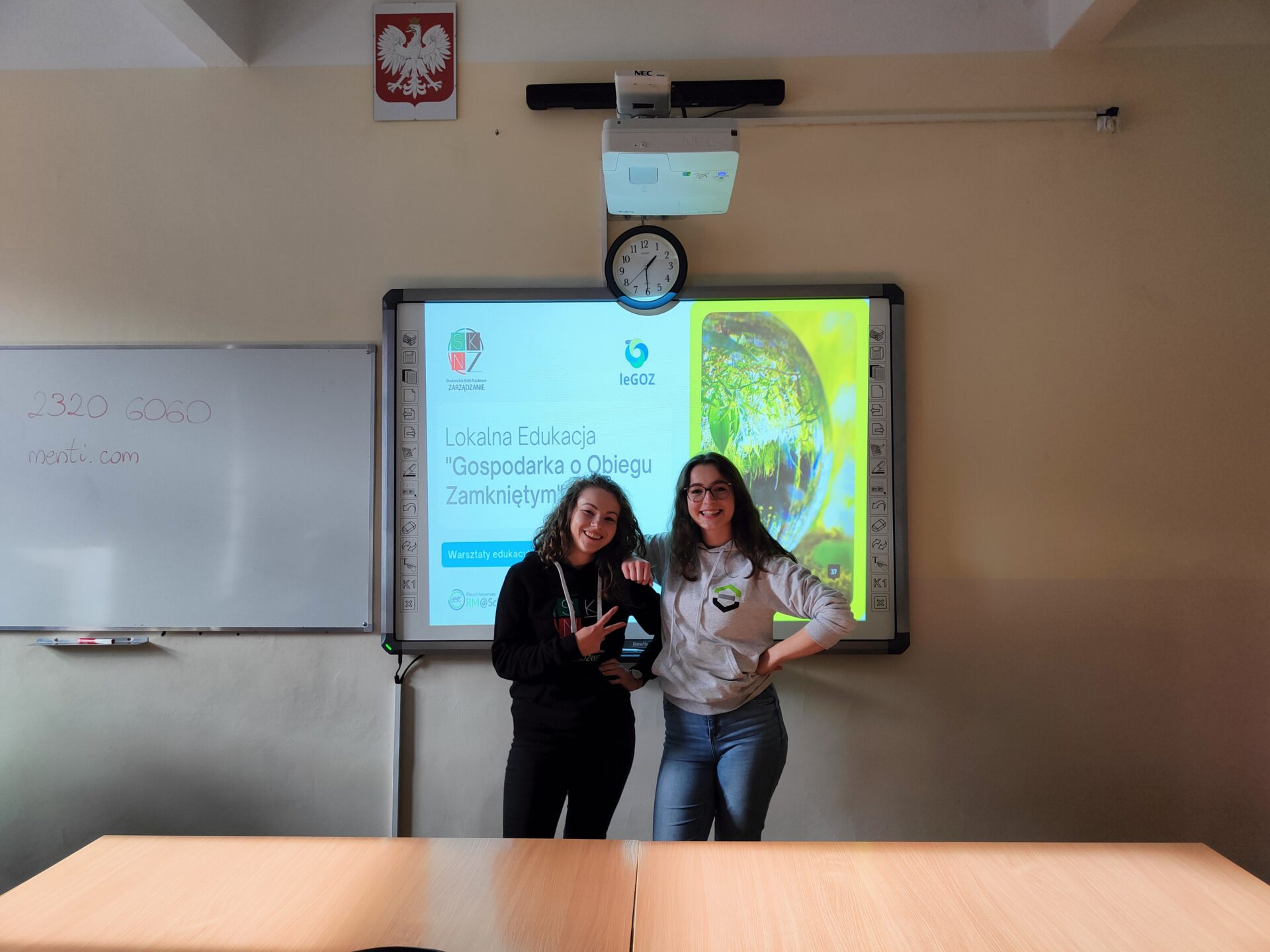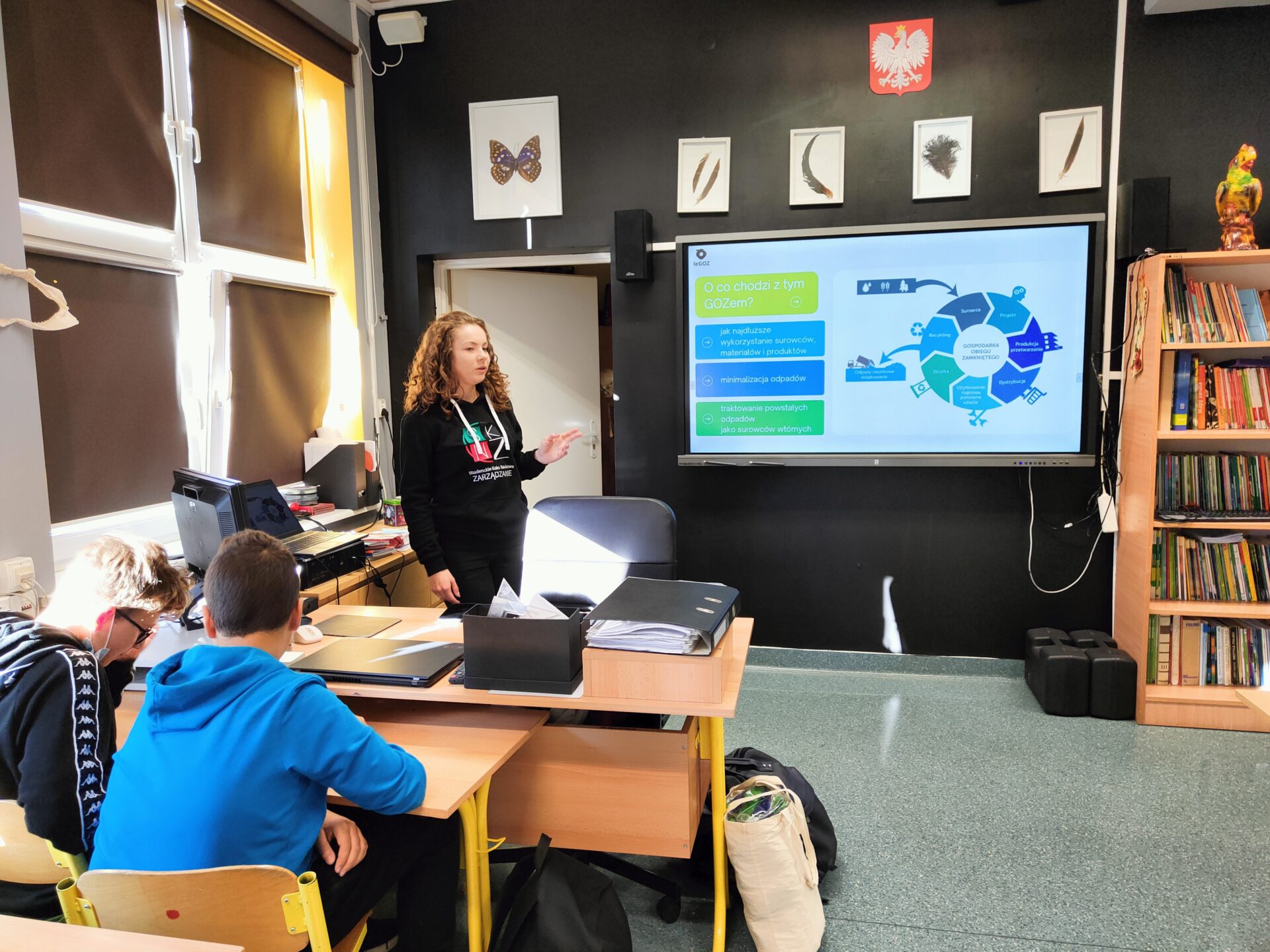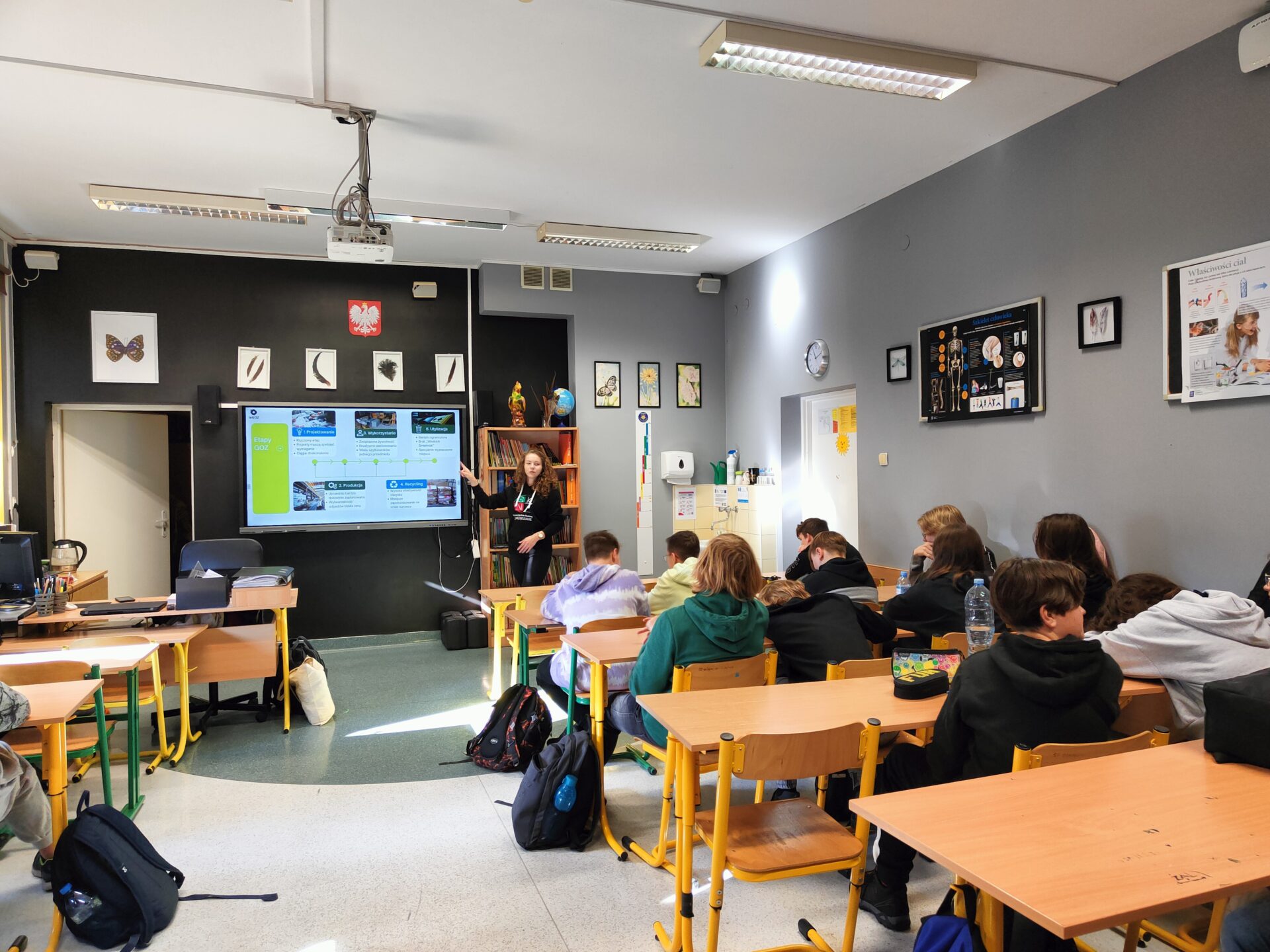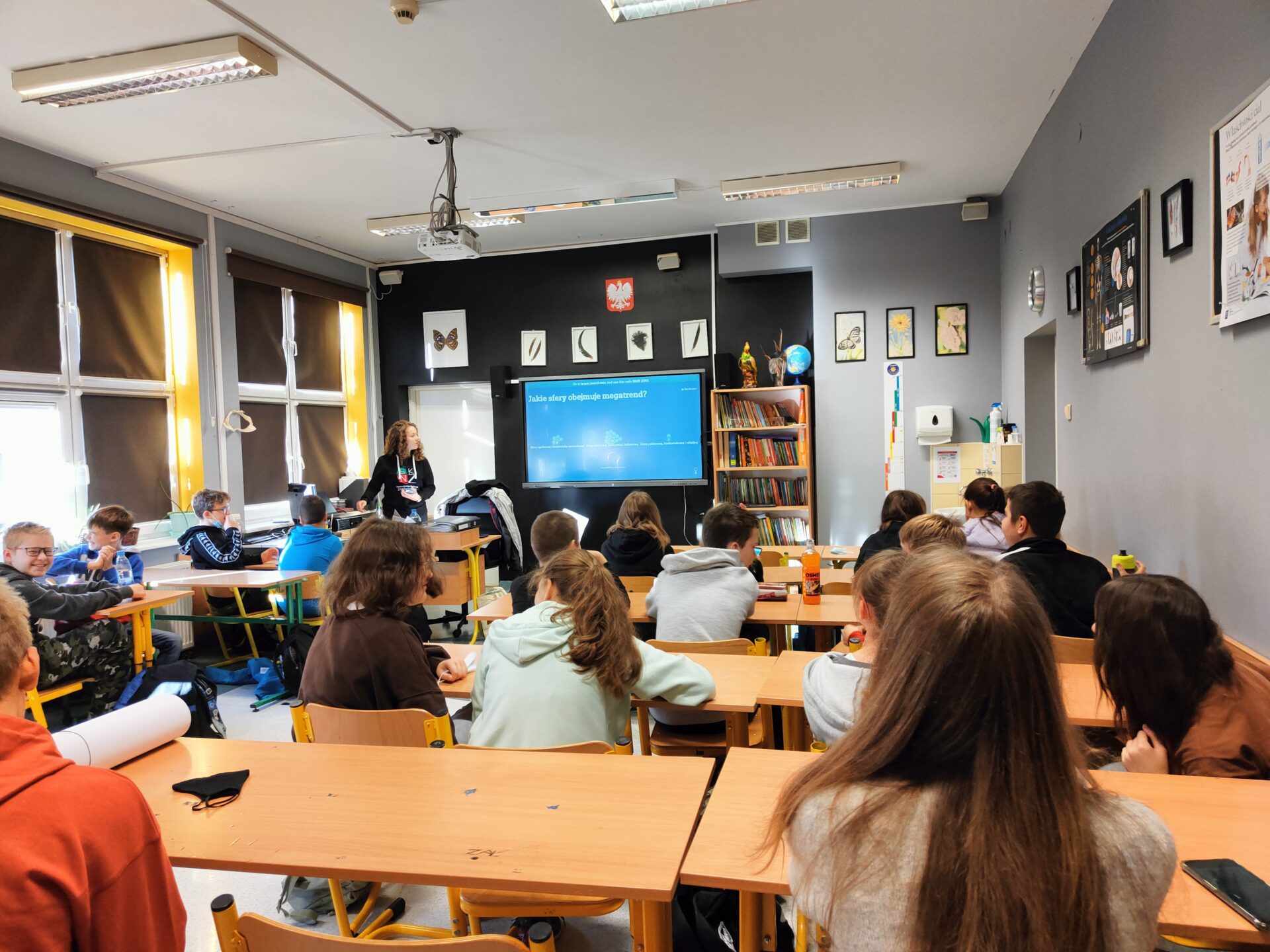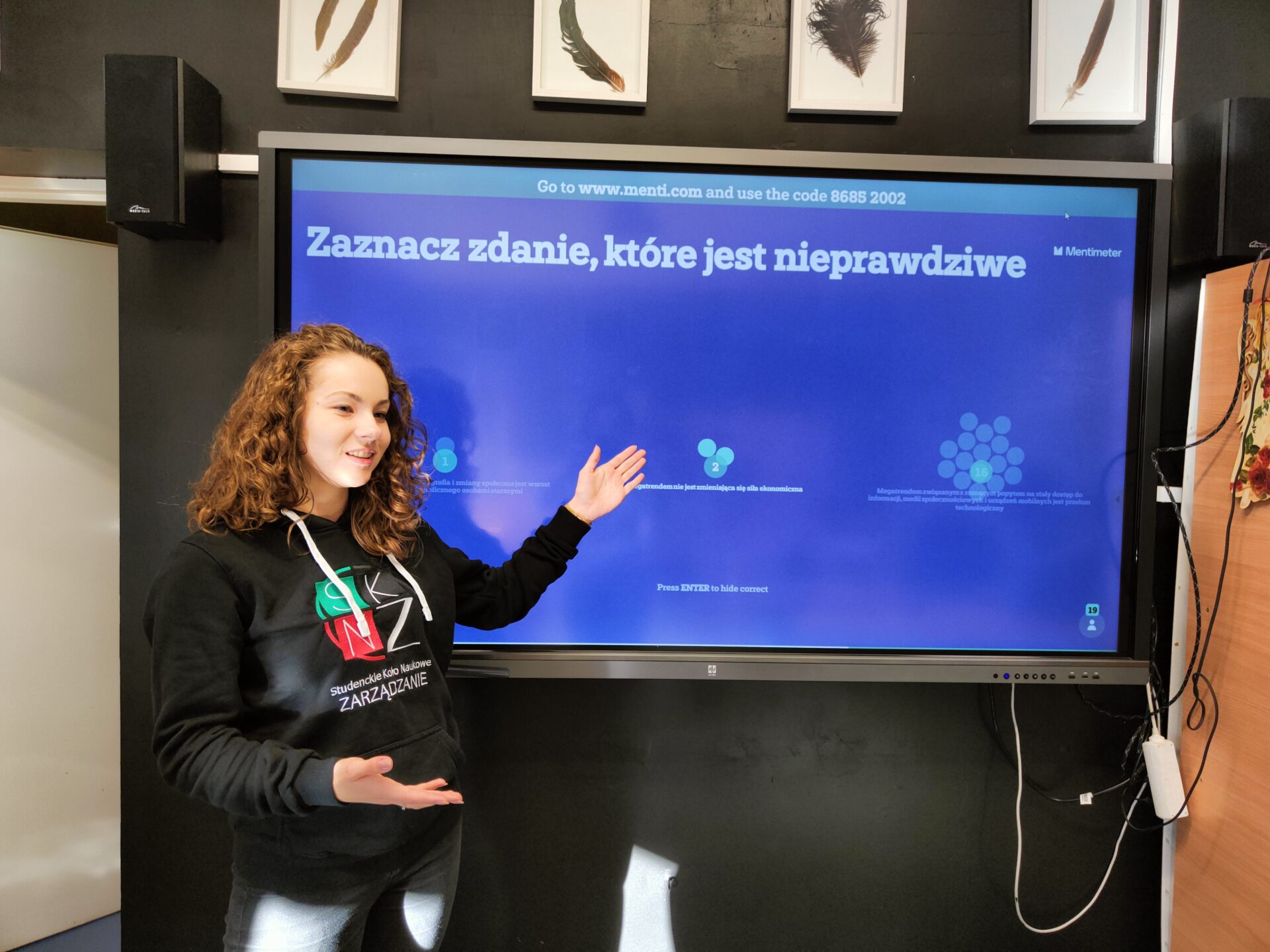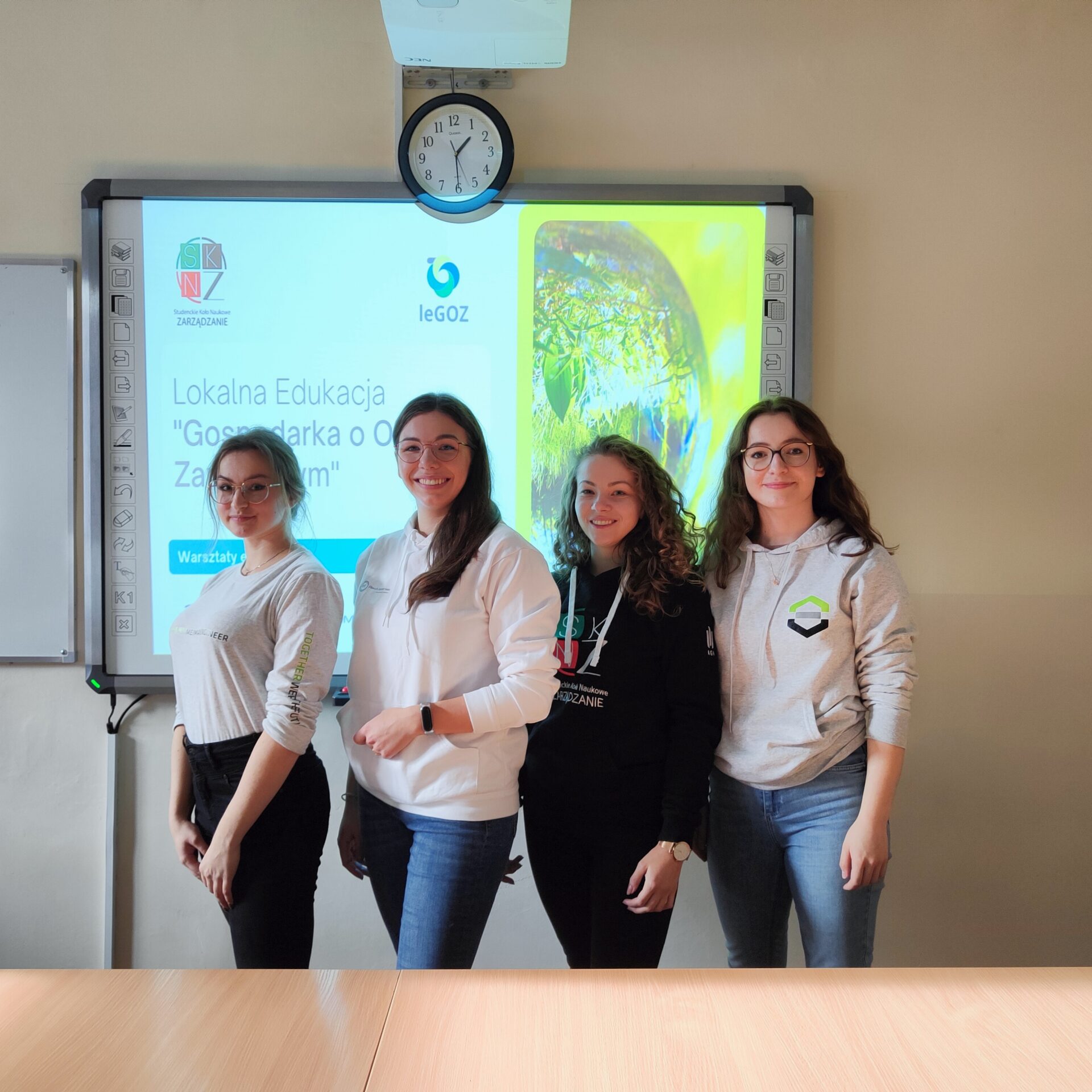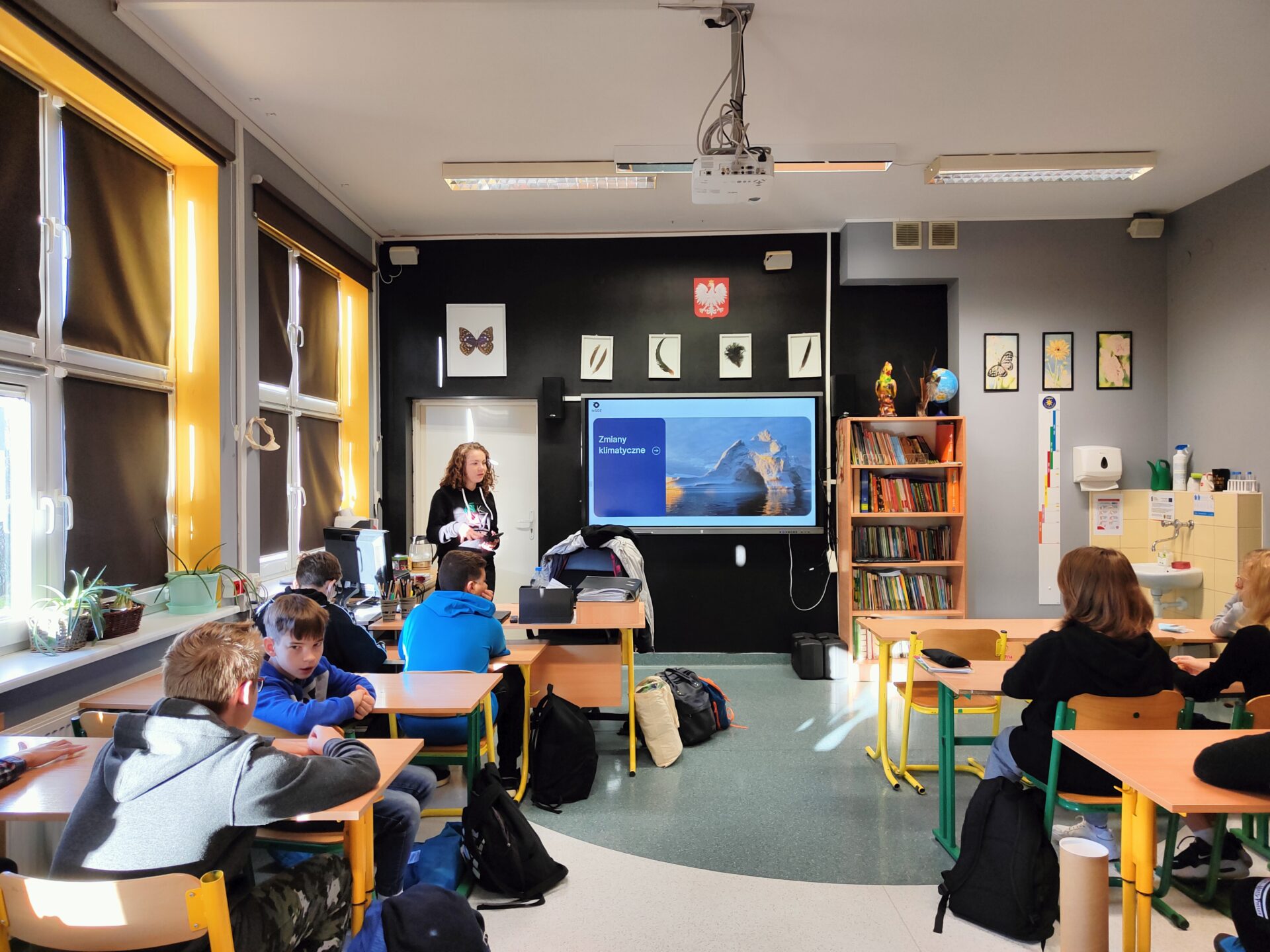
- This event has passed.
leGOZ – multilevel educational approach to the topic of sustainable development
May 19 All day
About leGOZ
LeGOZ, ie Local Education – Circular Economy, is one of the projects implemented by the Students Research Group Zarzadzanie operating at our department. The idea itself was created in 2020, and was implemented as part of the “Rector’s Grant 2021”, under the title: Multilevel educational approach to the topic of sustainable development – 6th edition of the Responsible Business Conference, workshops “Local Education – Circular Economy”, qualitative research of enterprises in the aspect of Corporate Social Responsibility.
As a part of the grant theoretical materials were created, workshops were conducted and work on the practical aspects began.
leGOZ Workshop
The project assumed conducting 4 series of workshops for primary school students and secondary school students. Each workshop lasted 1.5 hours. During the course, the participants were introduced to the problem of the depletion of raw materials, the model of linear economy, the idea of the VIth Circular Economy, the assumptions of the concept, examples of its use in the enterprise and the positive effects of its implementation.
The theoretical part of the workshop was divided into two parts, each of which ended with a short quiz on the educational platform. The advantage of the tests was beneficial because of the better knowledge acquisition.
Synergii with other projects
The members of the SKNZ also conducted several workshops on the Circular Economy as part of the RM@Schools project for secondary school students in Lubin. RM@Schools, or Raw Materials at Schools, is also a project implemented by our department as part of EIT RawMaterials Academy and EIT RawMaterials – members of SKN Zarządzanie are part of the project’s working group.
In the next edition of the project, the workshops will be conducted in a comprehensive manner, consisting of the current theoretical part and a newly developed practical part. Involved students, using specially prepared worksheets, on the basis of specific examples, will show younger students how to improve individual stages of the product life cycle so that they comply with the principles of the Circular Economy concept.
